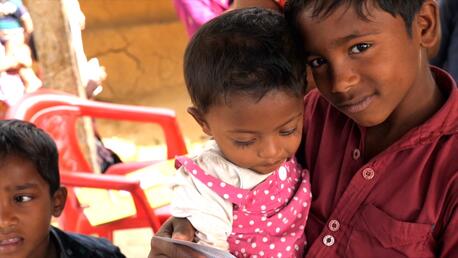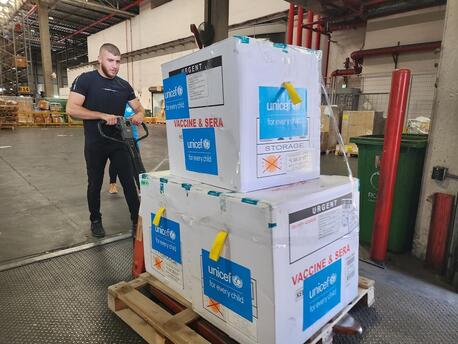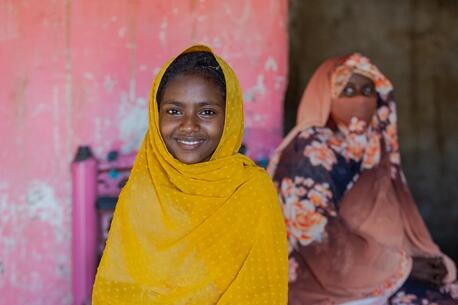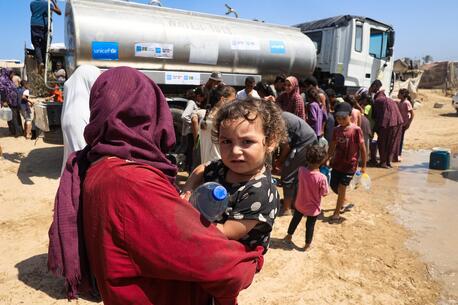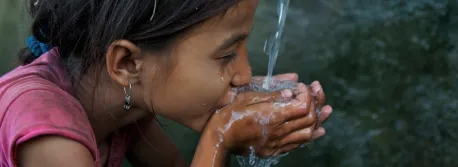
Clean and Safe Water Projects: UNICEF's Mission
UNICEF provides safe water, sanitation and hygiene services in over 100 countries
Water is life. But when water is unsafe and sanitation nonexistent, water can kill.
Children under age 5 are, on average, 20 times more likely to die from diarrheal diseases associated with poor water, sanitation and hygiene than from violence in conflict. Unsafe water and diseases caused by poor sanitation are one of the leading causes of death in children under 5 years old.
The COVID-19 pandemic reinforced the importance of safe water, sanitation and hygiene (WASH). Handwashing is essential to fighting infectious diseases such as cholera. Yet 3 billion people don't have soap and water at home, and over 800 million children attend schools where they can't wash their hands. Globally, one in five children do not have enough water to meet their everyday needs.
UNICEF works in more than 100 countries to provide safe water, sanitation and hygiene services (WASH) to the world's most vulnerable communities, whether by delivering safe water after a disaster or promoting proper hygiene practices in schools and communities.
Through initiatives like Water Security for All, UNICEF seeks to ensure every child has access to sustainable and climate-resilient water services.
UNICEF accelerated WASH-related interventions at the onset of the coronavirus pandemic to contain the spread, reaching nearly 74 million people with vital supplies like soap and hygiene kits and installing handwashing stations and latrines that supported millions of people.
Securing adequate water, sanitation and hygiene services for households, schools and health care facilities remains core to UNICEF's mission around the world.
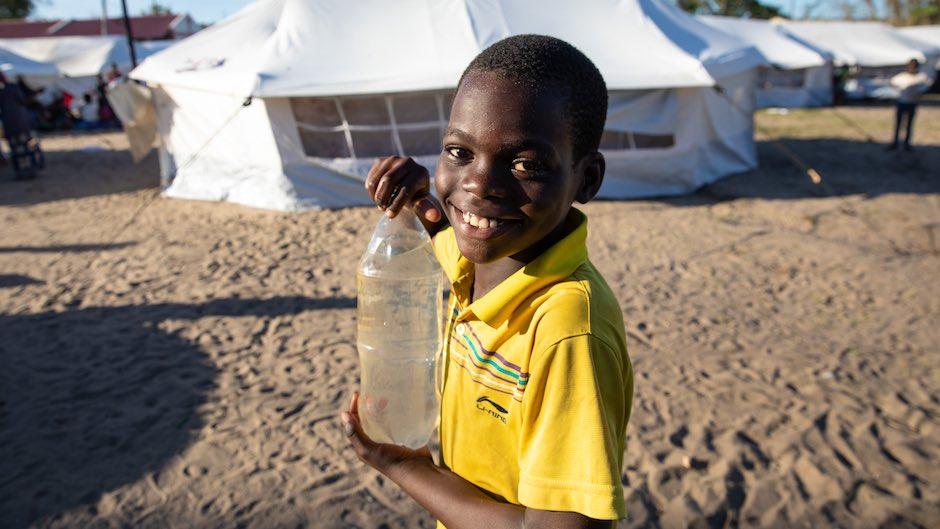
When Tropical Cyclone Eloise hit Mozambique, UNICEF emergency response teams rushed to help the estimated 170,000 people severely affected by the tropical superstorm. This little boy received safe drinking water and other lifesaving assistance from UNICEF and partners. © UNICEF/UN0409398/Franco
'Building back better' is a driving force behind UNICEF's response to all emergencies
UNICEF focuses on achieving water security for children through innovation, investment and collaboration, and by ensuring services are sustainable and resilient to climate shocks. When disaster strikes, and water systems are damaged, UNICEF works to build them back better.
Ensuring WASH services are also climate-resilient can better prepare communities to fight the spread of infectious diseases and potentially prevent future pandemics.
UNICEF also works with the World Health Organization and other partners to ensure that WASH becomes a permanent fixture in government plans, programs and budgets.
Since 2000, UNICEF has helped more than 1.6 billion people access safe drinking water — be it piped into the home or drawn from a protected well.
Support UNICEF's WASH programs for children and families in need.Donate today.
